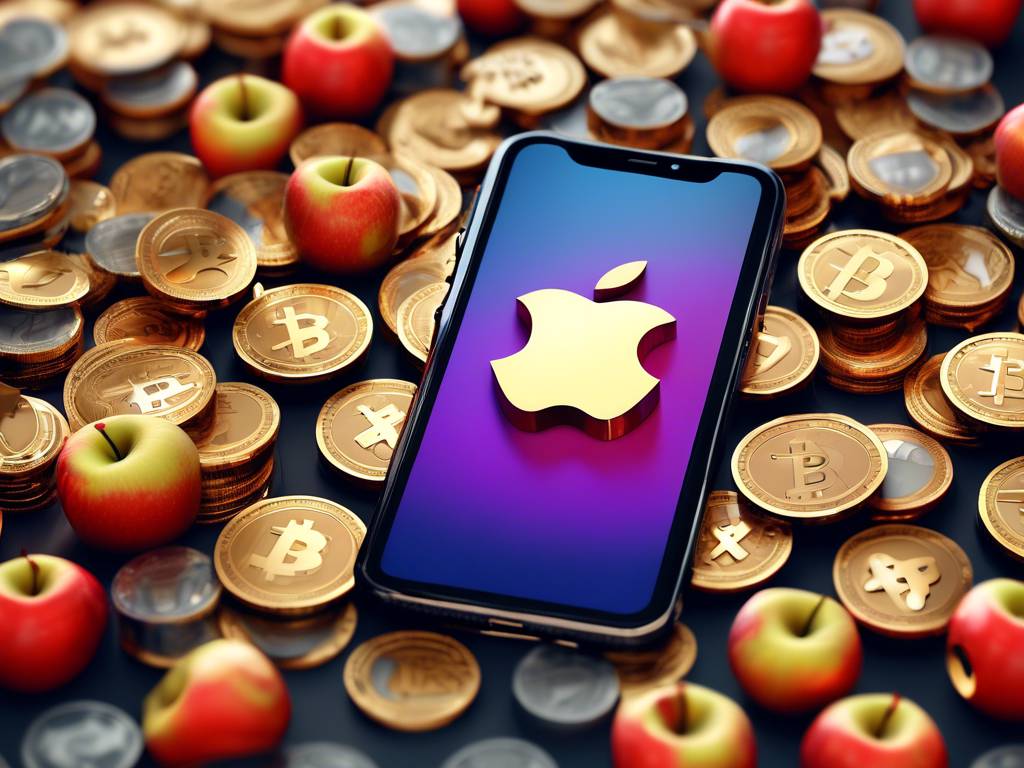DOJ Files Antitrust Lawsuit Against Apple Over App Store Monopoly
The United States Department of Justice (DOJ) has taken legal action against tech giant Apple, accusing the company of maintaining an illegal monopoly over the smartphone market through its App Store rules and restrictions. Supported by 16 state attorney generals, the lawsuit alleges that Apple’s practices limit competition, stifle innovation, and result in higher fees and a degraded user experience.
Summary of the Lawsuit
- The DOJ claims that Apple’s App Store rules and restrictions limit competition and innovation.
- Apple’s policies have impacted various industries, including financial services and crypto-based apps.
- The lawsuit accuses Apple of blocking innovative apps, suppressing mobile cloud streaming services, limiting cross-platform messaging, diminishing non-Apple smartwatch functionality, and restricting third-party digital wallets.
- Apple enforces its App Store rules arbitrarily and penalizes developers who threaten its monopoly power.
The DOJ highlights the significant impact of Apple’s “shapeshifting rules and restrictions” on various industries, particularly financial services. These policies have ousted alternative payment systems, making it challenging for crypto-based apps to offer in-app purchases. As a result, these apps have had to disable certain features or face removal from the App Store.
The lawsuit specifically points out several areas where Apple allegedly abuses its power. This includes blocking innovative apps that facilitate platform switching for users, suppressing mobile cloud streaming services, limiting cross-platform messaging capabilities, reducing non-Apple smartwatch functionality, and restricting third-party digital wallets.
Furthermore, the DOJ accuses Apple of enforcing its App Store rules arbitrarily. The company penalizes developers who pose a threat to its monopoly power. This has had a direct impact on crypto-based apps such as NFT marketplaces and the Bitcoin-friendly social app Damus, which have had to disable certain features or face removal from the App Store.
Apple has responded to the lawsuit, with a spokesperson stating that the DOJ’s complaint is “wrong on the facts and the law.” The company intends to vigorously defend itself against these allegations. Apple argues that this lawsuit sets a dangerous precedent, potentially giving the government the power to dictate technology design.
The announcement of the lawsuit has already affected Apple’s stock, with shares falling by 4%. As the case progresses, it is expected to have significant implications for the tech industry and the future of competition in the smartphone market.
Impact on Financial Services and Crypto Apps
Apple’s App Store rules and restrictions have had a direct impact on various industries, including financial services. The DOJ lawsuit sheds light on how these policies have affected crypto-based apps in particular:
- Alternative payment systems have been ousted: Apple’s policies make it difficult for crypto-based apps to offer in-app purchases using alternative payment systems. This forces these apps to either disable certain functionalities or risk removal from the App Store.
- Limited functionality for crypto-based apps: The restrictions imposed by Apple diminish the functionality of crypto-based apps, making it challenging for users to engage in activities such as trading or accessing NFT marketplaces.
- Penalizing innovative apps: Apple allegedly blocks innovative apps that could facilitate platform switching for users. This limits competition and stifles innovation within the crypto industry.
These restrictions have created significant challenges for crypto-based apps and have hindered their ability to provide seamless experiences for users. By enforcing its App Store rules arbitrarily, Apple maintains its monopoly power and restricts competition within the cryptocurrency space.
The Future Implications
The DOJ’s antitrust lawsuit against Apple has far-reaching implications for the tech industry and the future of competition in the smartphone market:
- Greater scrutiny of App Store policies: This lawsuit brings attention to the practices of Apple’s App Store and may result in increased scrutiny of its rules and restrictions. If the DOJ succeeds, it could lead to significant changes in how Apple operates its App Store.
- Enhanced competition and innovation: If Apple is found guilty of maintaining an illegal monopoly, it could open up opportunities for increased competition and innovation within the smartphone market. This could benefit consumers by providing them with more choices and better user experiences.
- Impact on other tech giants: The outcome of this lawsuit may set a precedent for future antitrust cases against other tech giants. Companies such as Google and Amazon could also face legal challenges regarding their business practices.
It is important to note that while the DOJ has filed this lawsuit, the case is still ongoing, and its outcome remains uncertain. As the legal battle unfolds, it will be interesting to see how it shapes the future of competition within the tech industry.
Hot Take: Examining Apple’s App Store Practices
The DOJ’s antitrust lawsuit against Apple raises important questions about the company’s App Store practices and their impact on competition and innovation. While Apple maintains that its rules are necessary for security and user experience, critics argue that these rules stifle competition and limit consumer choice.
This legal battle highlights the need for a comprehensive examination of app store policies across the tech industry. Striking a balance between platform control and fostering competition is crucial for ensuring a fair marketplace that benefits both developers and users.
As consumers, we should follow this case closely as its outcome could shape the future landscape of app stores and influence how companies like Apple operate their platforms. The tech industry is constantly evolving, and it is essential that regulations and legal actions keep pace to protect fair competition and promote innovation.
Sources: United States v. Apple Inc., Al Jazeera, Cointelegraph
Guiding both intrepid trailblazers and inquisitive novices, Blair’s insights serve as a compass for discerning decision-making amidst the ever-evolving currents of cryptocurrencies. With the artistry of a linguistic virtuoso, they craft narratives that enrich the evolving tapestry of the crypto landscape.

